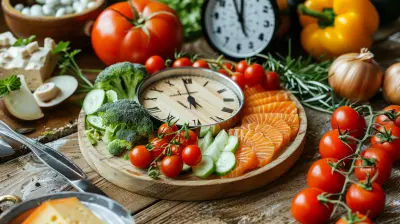The Best Natural Sources of Vitamin B12 for Vegetarians and Vegans
25 July 2025
Vitamin B12—it's that elusive, little-known nutrient that plays a massive role in keeping your body humming. It’s crucial for nerve function, DNA production, and red blood cell formation. But there’s a catch: this essential vitamin is mostly found in animal products.
For vegetarians and vegans, getting enough B12 can feel like searching for a needle in a haystack. But fear not! There are natural plant-based and fortified sources that can help you meet your daily needs without compromising your lifestyle. Let’s dive into the mystery of B12 and unearth the best ways to get it naturally. 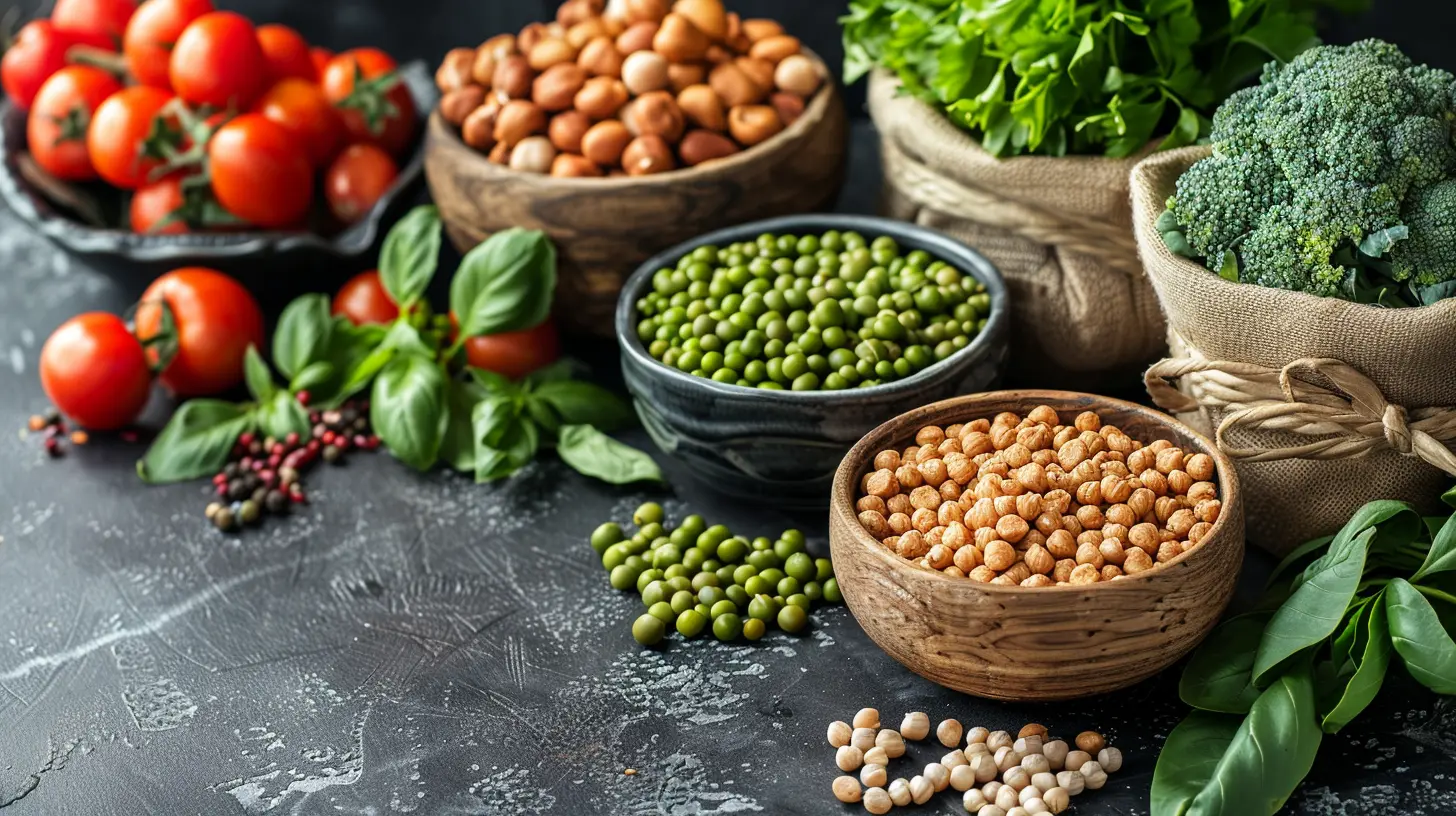
Why Is Vitamin B12 So Important?
Before we go hunting for sources, let’s understand why B12 is such a big deal. Without enough of it, your body might start waving red flags—fatigue, weakness, dizziness, and even a tingling sensation in your hands and feet. Over time, a deficiency can lead to severe neurological problems and anemia.The twist? Your body actually stores Vitamin B12 for years, making deficiency symptoms sneak up on you when you least expect them. That’s why it’s crucial to get a steady supply of this vitamin before it becomes a problem. 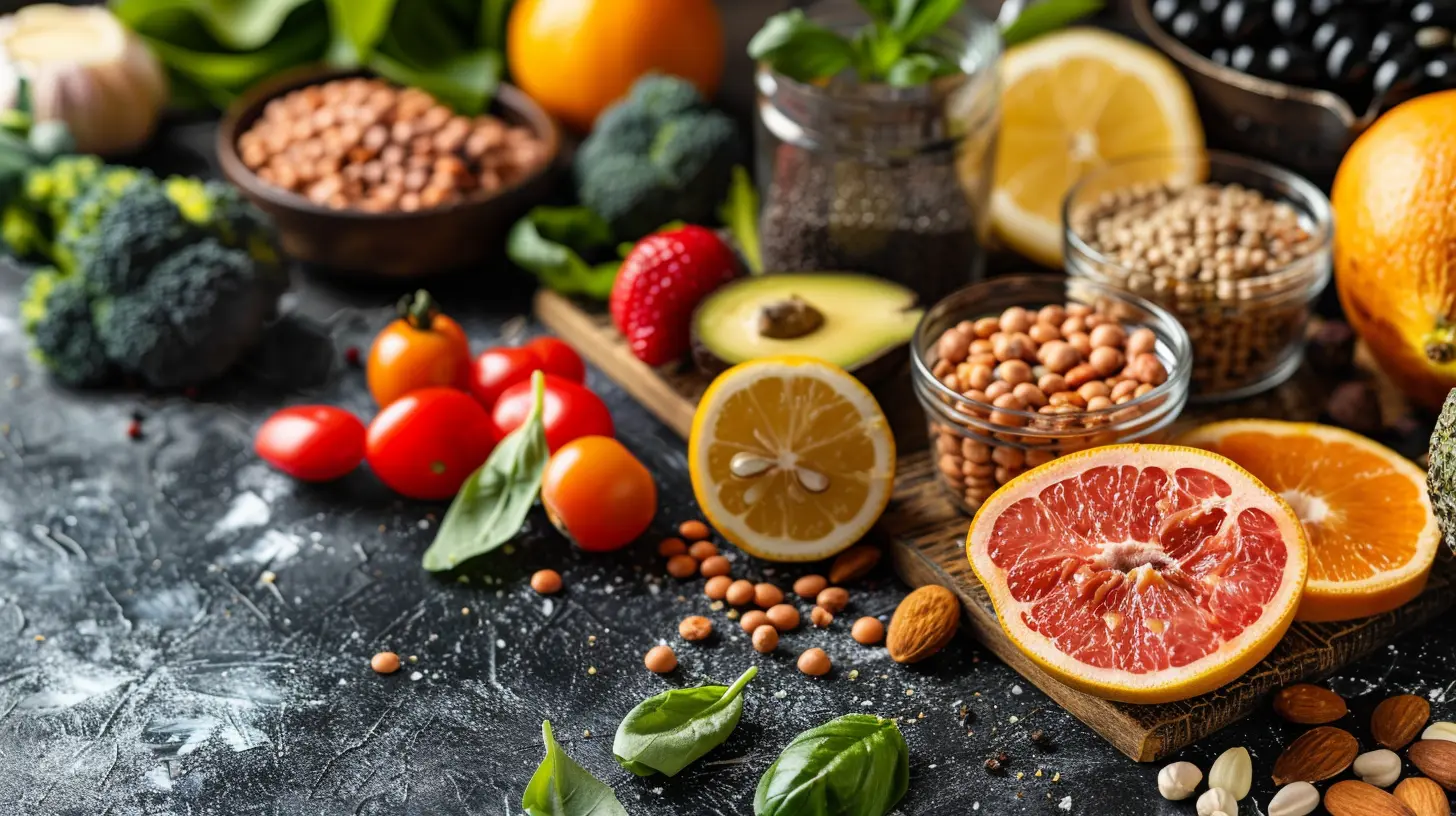
Where Does Vitamin B12 Come From?
Here’s the plot twist—B12 isn’t actually made by plants or animals. It’s produced by bacteria found in soil and in the guts of animals. In the past, our ancestors got it from unwashed veggies or drinking from natural water sources, but modern sanitation has wiped out these bacterial sources.For vegans and vegetarians, this means relying on specific plant-based sources, fortified foods, or supplements. But what are the best natural sources? Let’s unravel the mystery. 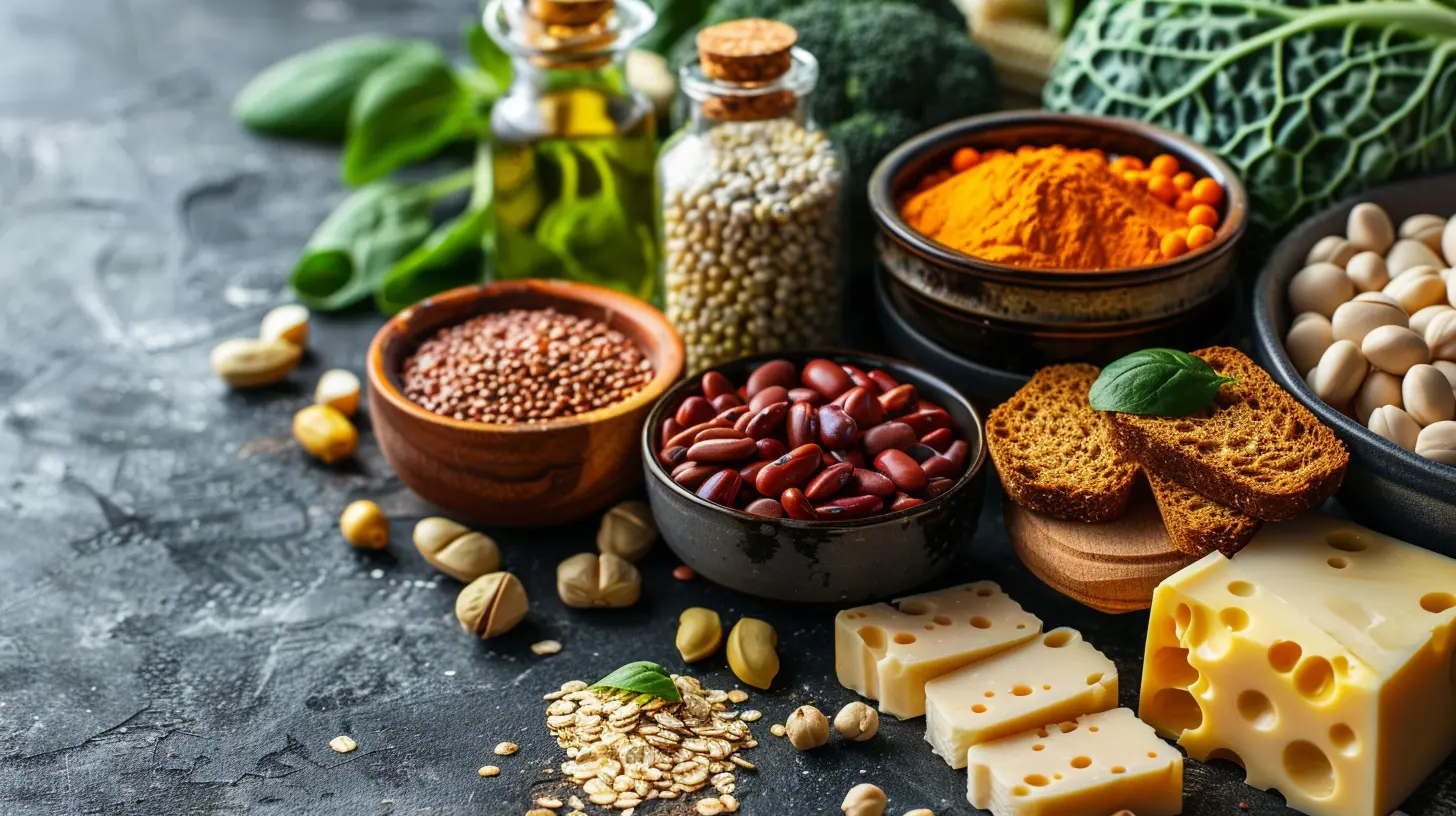
Natural Sources of Vitamin B12 for Vegetarians & Vegans
Since B12 is mostly found in animal products, vegetarians (who consume dairy and eggs) have a slight advantage. Vegans, on the other hand, need to be more intentional about sourcing their B12. Here are the best options:1. Nutritional Yeast – The Vegan Superfood
Often referred to as "nooch," nutritional yeast is a game-changer for plant-based eaters. This golden, flaky ingredient is packed with a nutty, cheesy flavor and is commonly fortified with B12.✅ How to use it?
- Sprinkle it on popcorn, pasta, or salads.
- Mix it into soups or sauces for a creamy, umami boost.
- Add it to smoothies for an extra nutrient punch.
Make sure to check the packaging; not all nutritional yeast is fortified with B12. But when it is, a couple of tablespoons can provide your daily dose!
2. Fortified Plant-Based Milks – A Daily Dose of B12
Many plant-based milks, including almond, soy, oat, and coconut milk, are fortified with Vitamin B12. Drinking a glass of fortified plant milk daily is one of the easiest ways to keep your levels up.✅ How to use it?
- Pour it over cereal or oatmeal.
- Blend it into smoothies.
- Use it as a coffee creamer.
Again, always check the label to ensure it contains B12, as not all brands fortify their products.
3. Fortified Cereals – A Quick & Easy Option
Breakfast can be your secret weapon for boosting B12 levels. Many breakfast cereals are fortified with essential nutrients, including B12.✅ How to use it?
- Enjoy it with fortified plant-based milk for a double B12 boost.
- Crush it over yogurt for a crunchy topping.
- Snack on dry cereal when you're on the go.
Look for whole-grain, low-sugar options to keep things healthy.
4. Shiitake Mushrooms – The Unexpected Contender
Mushrooms are one of the very few plant-based foods that naturally contain a trace amount of B12. Shiitake mushrooms, in particular, have been found to contain small amounts of this precious vitamin.✅ How to use it?
- Sauté them with garlic and toss them into stir-fries.
- Add them to soups for depth and richness.
- Roast them for a meaty, umami-packed treat.
While mushrooms alone won’t provide enough B12 to meet your daily needs, they can be a helpful addition to a well-rounded diet.
5. Nori (Seaweed) – Ocean’s Hidden Gem
Nori, the seaweed used in sushi, is another plant-based source of Vitamin B12. Some studies suggest that consuming nori regularly could contribute to maintaining adequate B12 levels.✅ How to use it?
- Wrap it around rice for homemade sushi.
- Crumble it into soups or salads for an oceanic umami punch.
- Snack on dried seaweed sheets.
However, the amount of B12 in seaweed varies, and it’s not a guaranteed primary source.
6. Tempeh – The Fermented Surprise
Tempeh, a fermented soy product, has traces of Vitamin B12 thanks to its natural fermentation process. Though the levels are not high enough to rely on as a sole source, it can be a good addition to a B12-conscious diet.✅ How to use it?
- Slice and pan-fry it for a crispy, protein-rich topping.
- Crumble it into tacos or stir-fries.
- Marinate it and grill it like a steak substitute.
Always opt for traditionally fermented tempeh for the best nutritional benefits. 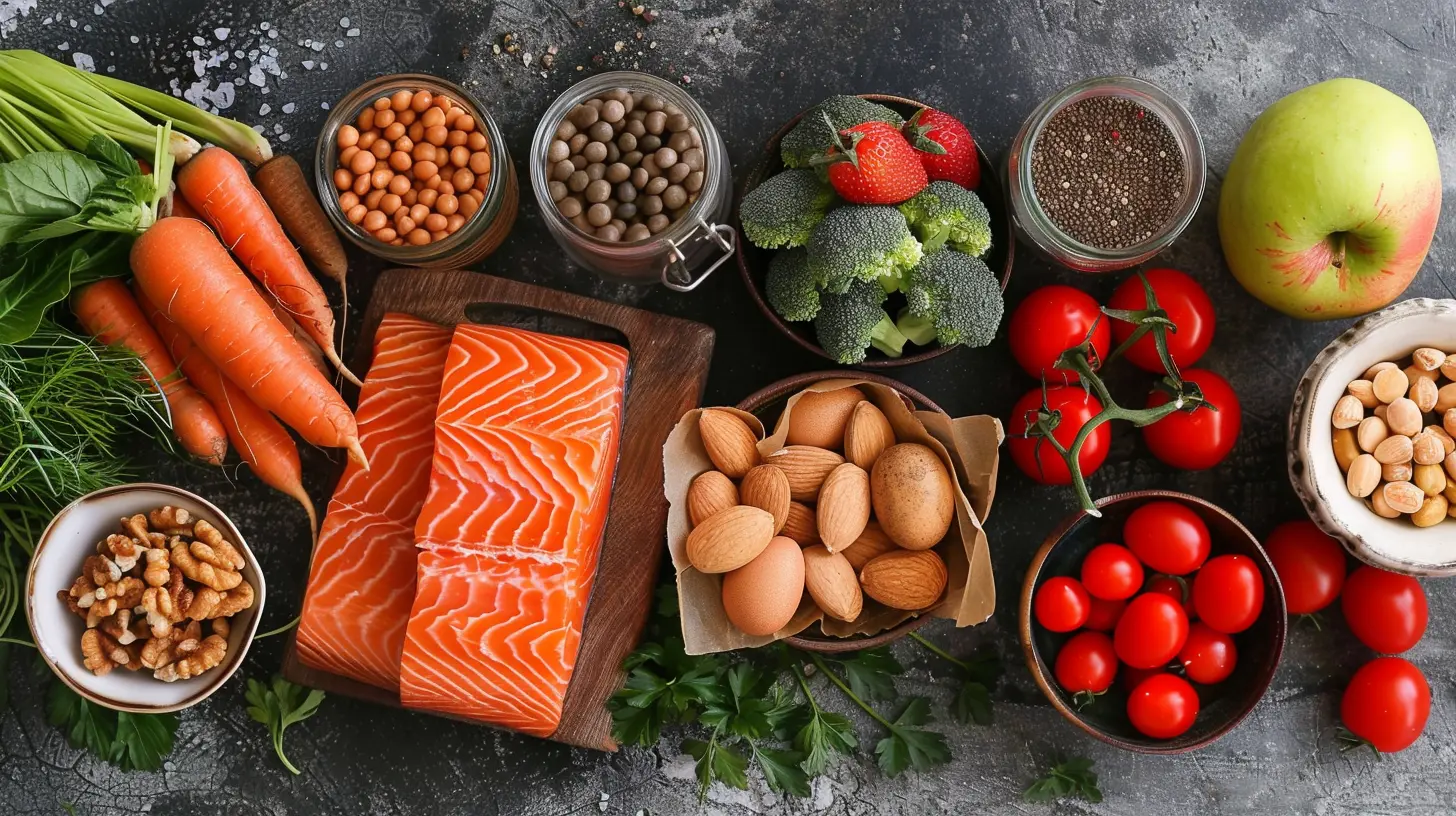
Should You Consider a B12 Supplement?
Here’s the hard truth—if you’re a strict vegan, plant-based sources alone might not cut it. The most reliable way to ensure you're getting enough B12 is through fortified foods or supplements.The good news? B12 supplements are widely available, affordable, and highly effective. A simple sublingual (under-the-tongue) supplement or a fortified multi-vitamin can keep deficiency at bay.
For those unsure about their levels, a quick blood test can reveal whether supplementation is necessary.
How Much B12 Do You Actually Need?
The Recommended Dietary Allowance (RDA) for Vitamin B12 is:- 2.4 mcg per day for adults
- 2.6 mcg per day for pregnant women
- 2.8 mcg per day for breastfeeding women
Since the absorption of B12 can be tricky, consuming higher amounts from plant-based sources or fortifications is often recommended to ensure enough is actually getting into your system.
Final Thoughts
Getting enough Vitamin B12 as a vegetarian or vegan doesn’t have to be an unsolvable riddle. With fortified foods, nutritional yeast, plant-based milks, seaweed, and mushrooms, you can meet your needs while staying true to your diet.However, given the scarcity of natural plant-based B12 sources, supplements remain the surefire way to maintain optimal levels. When in doubt, consult a healthcare provider to keep your body thriving!
all images in this post were generated using AI tools
Category:
VitaminsAuthor:

Eileen Wood
Discussion
rate this article
1 comments
Amber Roberts
Balance is key; supplement wisely for optimal health.
August 14, 2025 at 4:03 PM

Eileen Wood
Absolutely! Finding balance and choosing the right supplements can greatly enhance your health while following a plant-based diet.

